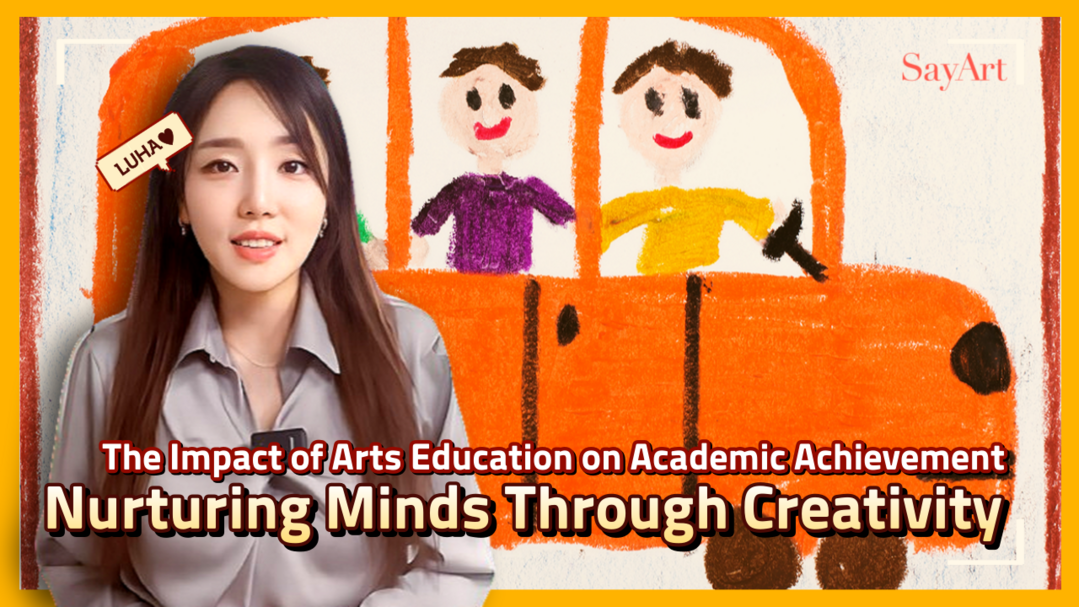2024, Jan 19th - In the dynamic landscape of education, the role of arts in shaping academic achievement has garnered increasing attention. Beyond the conventional subjects of math, science, and language arts, incorporating arts education into the curriculum has shown profound positive effects on students' cognitive development, emotional well-being, and overall academic success.
Arts education is not just about painting on a canvas, it's a gateway to enhanced cognitive abilities. Studies indicate that students engaged in arts programs often exhibit improved critical thinking, problem-solving skills, and better memory retention. Learning to express oneself through various art forms nurtures creativity, which is a key asset in tackling complex academic challenges.
Beyond the realm of academics, arts education contributes significantly to the development of emotional intelligence and social skills. Through creative expression, students learn to navigate and understand their emotions, fostering self-awareness and empathy. Collaborative arts projects also encourage teamwork, communication, and cooperation, skills that are invaluable not only in school but throughout life.
Every student is unique, and arts education recognizes and celebrates this diversity. It provides alternative avenues for learning, catering to different learning styles. Visual arts, music, theater, and dance offer varied modes of expression, ensuring that students with different strengths and preferences can find their voice and excel in their own way.
Engagement in arts activities contributes to a boost in self-esteem and confidence. When students see their creative endeavors appreciated, whether through a drawing, a musical performance, or a dramatic presentation, it fosters a sense of accomplishment. This sense of achievement, in turn, fuels motivation, creating a positive feedback loop that can spill over into other academic pursuits.
In conclusion, the impact of arts education on academic achievement is profound and multifaceted. It transcends the boundaries of traditional education, fostering creativity, emotional intelligence, and cognitive abilities. By recognizing the value of arts education, schools can provide students with a more comprehensive and enriching learning experience, nurturing well-rounded individuals ready to face the challenges of the future.
교육 속 여러 다양한 환경에서 학문적 성취를 형성하는 데 있어 예술의 역할은 점점 더 주목을 받고 있습니다. 기존의 수학, 과학, 언어 과목 외에도 예술 교육을 커리큘럼에 통합하는 것은 학생들의 인지 발달, 정서적 안정 및 전반적인 학업 성공에 심오하고 긍정적인 영향을 미치는 것으로 나타났습니다.
예술 교육은 단순히 캔버스에 그림을 그리는 것이 아니라 인지 능력을 향상킵니다. 연구에 따르면 예술 프로그램에 참여하는 학생들은 향상된 비판적 사고, 문제 해결 능력 및 더 나은 기억력을 보이는 것으로 나타났습니다. 다양한 형태의 예술을 통해 자신을 표현하는 방법을 배우면 창의력이 좋아지며, 이는 복잡한 학문적 과제를 해결하는 데 도움을 줍니다.
학문의 영역을 넘어, 예술 교육은 감성 지능과 사회적 기술의 발달에 크게 기여합니다. 창의적인 표현을 통해 학생들은 자신의 감정을 탐색하고 이해하는 방법을 배우며 자기 인식과 공감 능력을 키웁니다. 공동으로 함께 참여하는 예술은 학교뿐 아니라 인생 전반에 걸쳐 귀중한 기술인 팀워크, 의사소통, 협업력을 길러줍니다.
모든 학생은 특별하며 예술 교육은 이러한 다양성을 보여줍니다. 다양한 학습 스타일에 맞춰 학습을 위한 대안적 방법을 보여줍니다. 시각 예술, 음악, 연극, 무용은 다양한 표현 방식을 제공하여 다양한 장점과 선호도를 가진 학생들이 자신의 목소리를 찾고 자신만의 방식으로 탁월할 수 있도록 보장 해 줍니다.
예술 활동에 참여하면 자존감과 자신감이 향상됩니다. 학생들은 그림, 음악 공연을 통해 자신의 창의성을 표출해 내고, 노력을 인정받을 때 성취감이 커집니다. 이러한 성취감은 결국 동기 부여를 촉진하고 다른 학문적 추구에도 영향을 미칠 수 있는 긍정적인 피드백을 만들어 냅니다.
결론적으로, 예술교육이 학업 성취도에 미치는 영향은 심오하고 다면적입니다. 전통적인 교육의 경계를 뛰어넘어 창의성, 감성 지능, 인지 능력을 키워줍니다. 예술 교육의 가치를 인식함으로써 학교는 학생들에게 보다 포괄적이고 풍부한 학습 경험을 제공하고 미래의 도전에 직면할 준비가 된 다재다능한 개인을 육성할 수 있습니다.
Sayart / LUHA LEE 기자 luhachloe@gmail.com
Related articles
- Exploring the Intersection of Art and Fashion: The Fascinating World of Wearable Art _ 예술과 패션: 웨어러블 예술의 세계
- [SayArt] Korean actresses who graduated from art school_ 미술을 전공한 한국의 여배우들
- [SayArt] Simon Beck: Master of Snowshoe Art _ 스노슈 아트의 대가 사이먼 벡
- [SayArt] Supernatural Romance Unleashed: My Demon on TV and Webtoon_ 데몬과의 로맨스
- [SayArt] Top 5 symbolism in Christmas art _ 크리스마스를 상징하는 예술 Top 5

















